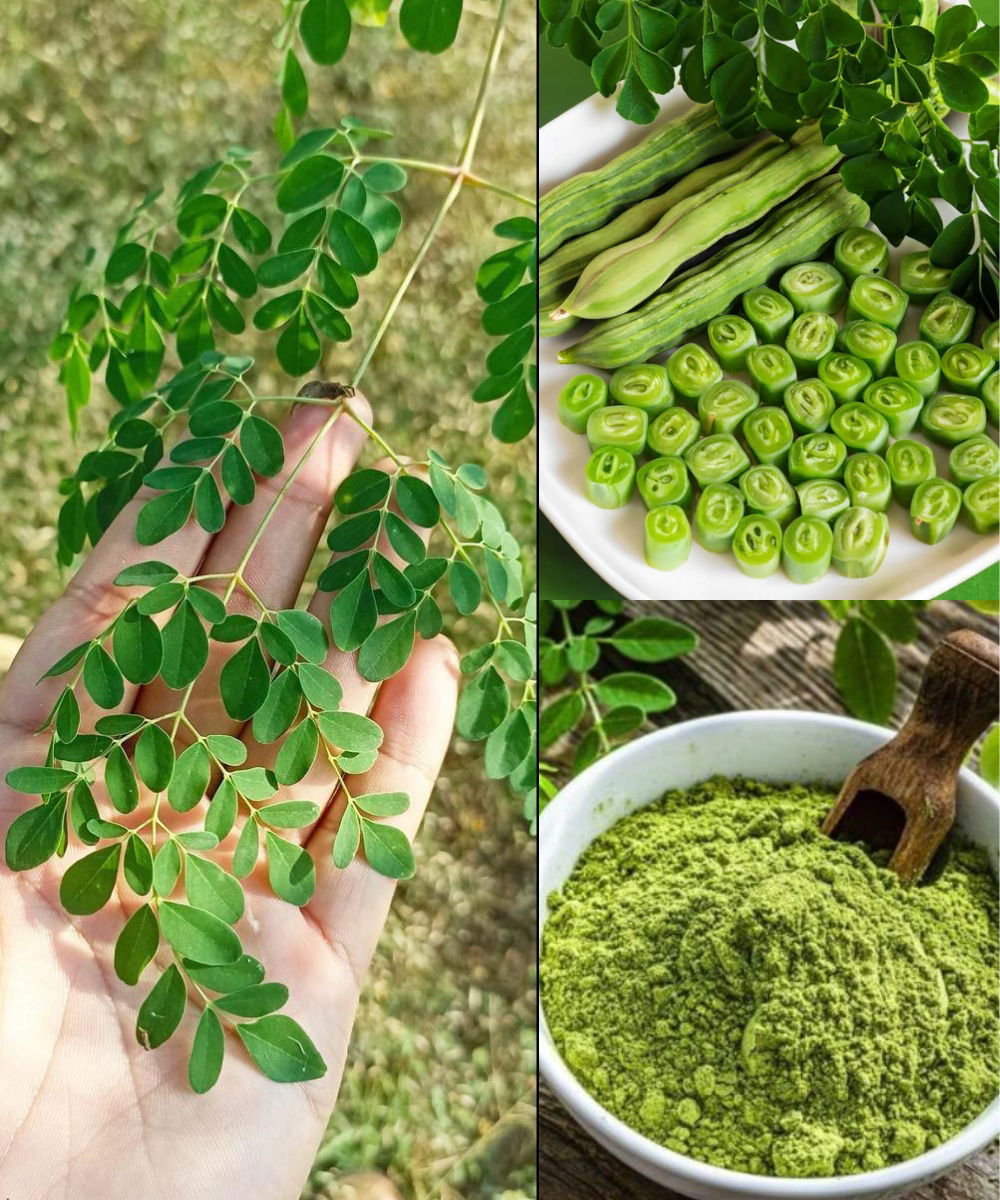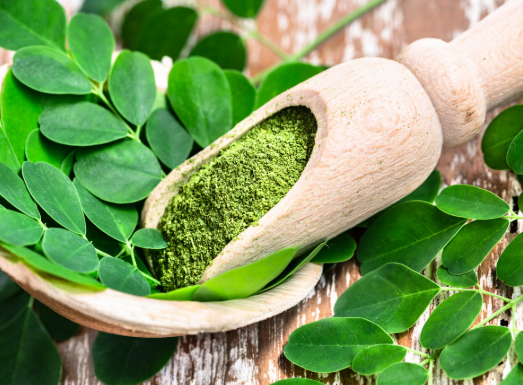
Moringa, commonly referred to as the “Miracle Tree,” has been valued for centuries due to its numerous health benefits. Native to the foothills of the Himalayas, this adaptable plant has long been used in traditional medicine to address a variety of health issues. In recent years, moringa has gained significant popularity in the health and wellness world, thanks to its nutrient-dense profile and potential to enhance overall health. In this article, we’ll dive into the top 10 health benefits of moringa and share simple ways to include this potent plant in your daily routine.
1. Nutrient-Dense Superfood
Moringa is a powerhouse of essential nutrients. It is packed with minerals like calcium, potassium, and iron. and vitamins, including vitamin A, C, and E. Just one serving of moringa leaves provides a significant percentage of your daily recommended intake of these nutrients, making it an excellent natural supplement for maintaining optimal health.
2. Powerful Antioxidant Properties
Moringa is packed with with antioxidants, which are compounds that help protect the body from oxidative stress and free radical damage. These antioxidants, such as chlorogenic acid and quercetin, have been linked to reducing inflammation, lowering the risk of chronic diseases, and promoting healthy aging.
3. Boosts Immune System
The high concentration of vitamins and minerals in moringa, particularly vitamin C and iron, plays an important part in supporting the immune system. Regular consumption of moringa can help bolster your body’s defense mechanisms, making it easier to ward off infections and illnesses.
4. Supports Heart Health
Moringa has been shown to have heart-protective properties due to its ability to lower cholesterol levels and regulate blood pressure. Addituionally, the plant’s antioxidants help reduce inflammation, which is a major contributor to cardiovascular disease. Incorporating moringa into your diet can be a natural way to support heart health.
5. Improves Digestive Health
Renown for its high fiber content, moringa can aid in digestion and promote regular bowel movements. In addition, moringa’s anti-inflammatory properties can help soothe the digestive tract, making it beneficial for those with conditions like irritable bowel syndrome (IBS) or gastritis.
6. Enhances Skin Health
Due to its rich vitamin E content and powerful antioxidants, moringa can improve skin health by reducing oxidative stress and promoting collagen production. Regular use of moringa, either topically or through dietary consumption, can lead to healthier, more radiant skin.
7. Supports Brain Health
Moringa is loaded with compounds that have neuroprotective properties, which can support cognitive function and mental clarity. The plant’s rich nutrient profile, particularly its vitamin E and C content, helps combat oxidative stress in the brain, which is linked to neurodegenerative diseases like Alzheimer’s.
8. Regulates Blood Sugar Levels
Moringa has been found to have blood sugar-lowering effects, making it beneficial for people with diabetes or those at risk of developing the condition. As per studies, moringa can help improve insulin sensitivity and reduce blood sugar spikes after meals.
9. Potent Anti-Inflammatory Properties
Chronic inflammation is at the root of many serious health conditions, including cancer, heart disease, and autoimmune disorders. Moringa’s potent anti-inflammatory compounds, such as isothiocyanates, can help reduce inflammation throughout the body, promoting overall health and reducing the risk of chronic diseases.
10. Supports Weight Management
Moringa’s high fiber content aids in digestion and helps you feel full for longer, reducing the likelihood of overeating. Plus, moringa’s ability to regulate blood sugar levels can help curb cravings and maintain energy levels, making it easier to stick to a healthy diet.
How to Use Moringa

Fresh Moringa Leaves: Harvest fresh leaves directly from the tree, wash them thoroughly, and add them to salads, soups, or stews just like spinach or kale. For a more subtle flavor, lightly sauté them in olive oil and garlic as a tasty side dish.
Drying Moringa Leaves: In order to preserve your moringa harvest, dry the leaves by spreading them in a single layer on a clean, dry surface, and let them air dry in a cool, shaded area. Once completely dry, crush them into a fine powder using a blender or mortar and pestle. Store this homemade moringa powder in an airtight container, and add it to smoothies, soups, or even baked goods whenever you need a nutrient boost.
Moringa Tea: Steep a handful of fresh leaves or slightly crushed dried leaves in hot water for about 5 minutes. You can enjoy your tea plain or add honey and lemon for extra flavor.
Using Moringa Pods (Drumsticks): Harvest young, tender pods, as they are the most flavorful. Cook them in soups, curries, or stir-fry them with other vegetables. Just cut the pods into small pieces and simmer them until tender.
Harvesting Moringa Seeds: The seeds can be eaten raw or roasted, or you can press them to extract moringa oil, which is excellent for cooking or skin care. To eat them, simply remove the outer shell and enjoy the inner seed.



















